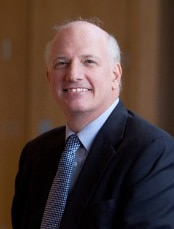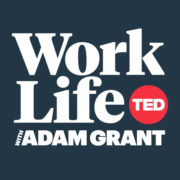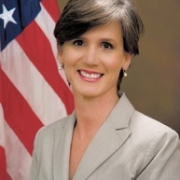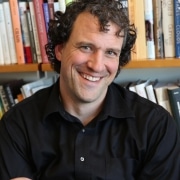Featured Collaborator for September: Robert Hurley
 Interview with Dr. Robert Hurley, Professor of Organization Behavior at Fordham University’s Gabelli School of Business
Interview with Dr. Robert Hurley, Professor of Organization Behavior at Fordham University’s Gabelli School of Business
What are your main areas of research?
For the past 10 years my focus has been on trust and the building of trustworthy organizations.
Prior to that I had published papers on innovation, market orientation, organization change and service orientation. In a way my research shifted to look at how can organizations change and innovate in ways that help not just companies, but also their stakeholders, flourish. One way of thinking about the violations of trust at Volkswagen, BP and Goldman Sachs is that these organizations innovated and changed over time but in ways that benefited some stakeholders while damaging and shifting risk to other stakeholders. This leads to cycles of manic innovation followed by excessive regulation and stagnation. It seems that we need to find a better and more sustainable approach.
How does your work on trust help companies that want to improve themselves as ethical systems?
We work with collaborators all over the world to examine in depth what stakeholder trust is and precisely how organizations that earn and sustain that trust operate. We very much agree with the eco system approach adopted by Ethical Systems. In 2012 we formed the Consortium for Trustworthy Organizations to translate this research into practical tools to help organizations move along a path to becoming more trustworthy.
Examples of these tools are executive programs where we teach leaders about trust in leadership and the need to create congruent organizational systems that create a reliable infrastructure to meet stakeholder needs. We have also developed survey tools to diagnose which elements of an organization need improvement to make the organization more trustworthy. Interestingly, our work has shown that there is not a one size fits all approach to developing a more trustworthy organization. Organizations, like people, are unique and our contests present different challenges. As such we must start with a full diagnosis that shows us in what ways we are trustworthy and in what ways we are not. Only then can we start moving in the right direction to meet our own and stakeholders needs.
If you could only highlight one paper or research finding (or piece of work that you’ve been involved with) that relates to Ethical Systems which one would it be and why?
In 2014 we published a paper in the MIT Sloan Management Review that sought to define the elements of a trustworthy organizations. The article was entitled: Designing Trustworthy Organizations. What motivated the research was a desire to understand why major trust violations keep happening nearly 2 decades after the shock of Enron. In this research we examined successful and unsuccessful examples of trust repair and what we found was that it is only when you change how the system operates, not just a few features, that the organization becomes more trustworthy. We developed a model of organization functioning that helps leaders understand how to build an organizational system that is worthy of stakeholder trust. Much of my 2012 book, The Decision to Trust, is about how to build trustworthy teams, organizations and industries.
Tell us about one of your current or future projects (perhaps something on an upcoming book or paper?
I am currently working on some research that unpacks the behavior of banks during the global financial crisis and looks at the underlying organizational dynamics that led to trust violations including LIBOR, mortgage fraud and excessive risk taking that led to multiple bankruptcies. Despite the convenient explanations of greedy bankers and incompetent regulators, there is a more complicated and accurate picture of dysfunctional innovation, market pressures, short term strategy, limitations of human cognition and failures of organizational learning that needs to be understood to prevent such crises in the future.
How did you first get interested in the field/subject of trust?
There is an intellectual and a practical aspect to my answer to this question. During my years in the doctoral program in Social and Organizational Psychology at Columbia I took two classes with Morton Deustch who is considered the godfather of research on conflict, cooperation and trust in psychology. His brilliant research and theorizing inspired me.
Earlier in my career after earning my MBA from Wharton, I was working as a Brand Manager for General Foods and was involved in managing a tampering crisis with one of our brands. In trying to figure out how to prevent tampering and keep our consumers safe, I was forced to examine the multi-dimensional aspects of how you run a profitable business while dealing with the many trade-offs and interests that should enter into our calculations if all stakeholders matter. My academic work at Columbia brought me to a much deeper level in understanding the underlying human and organizational behavior at play. I have been learning and applying many of these concepts with top executive teams over the past 25 years.
If you could only give one piece of advice to companies, what would it be?
You cannot, I repeat cannot, hope to build a truly trustworthy company if you have no measurement device in place. The reason is that building such a company is very inconvenient and requires a longer term and thoughtful approach to management. Without a clear understanding of what great looks like, we settle for cheaper, more convenient solutions that are really only window dressing.
If you could only give one piece of advice to individuals, what would it be?
All of us are untrustworthy in certain ways. This knowledge helps us in our journey towards our aspirational self.
Featured Article
- Hurley, Robert F. (2012) The Trustworthy Leader: The First Step Toward Creating High-Trust Organizations. Leader-to-Leader Fall 2012, pp 33-39.
Featured Video









